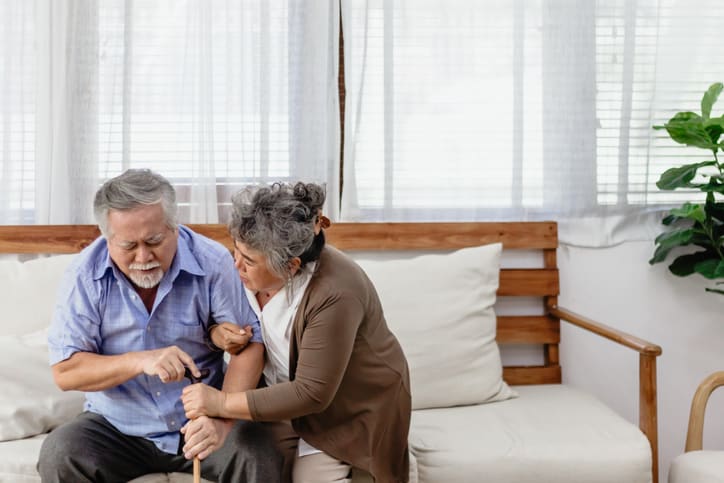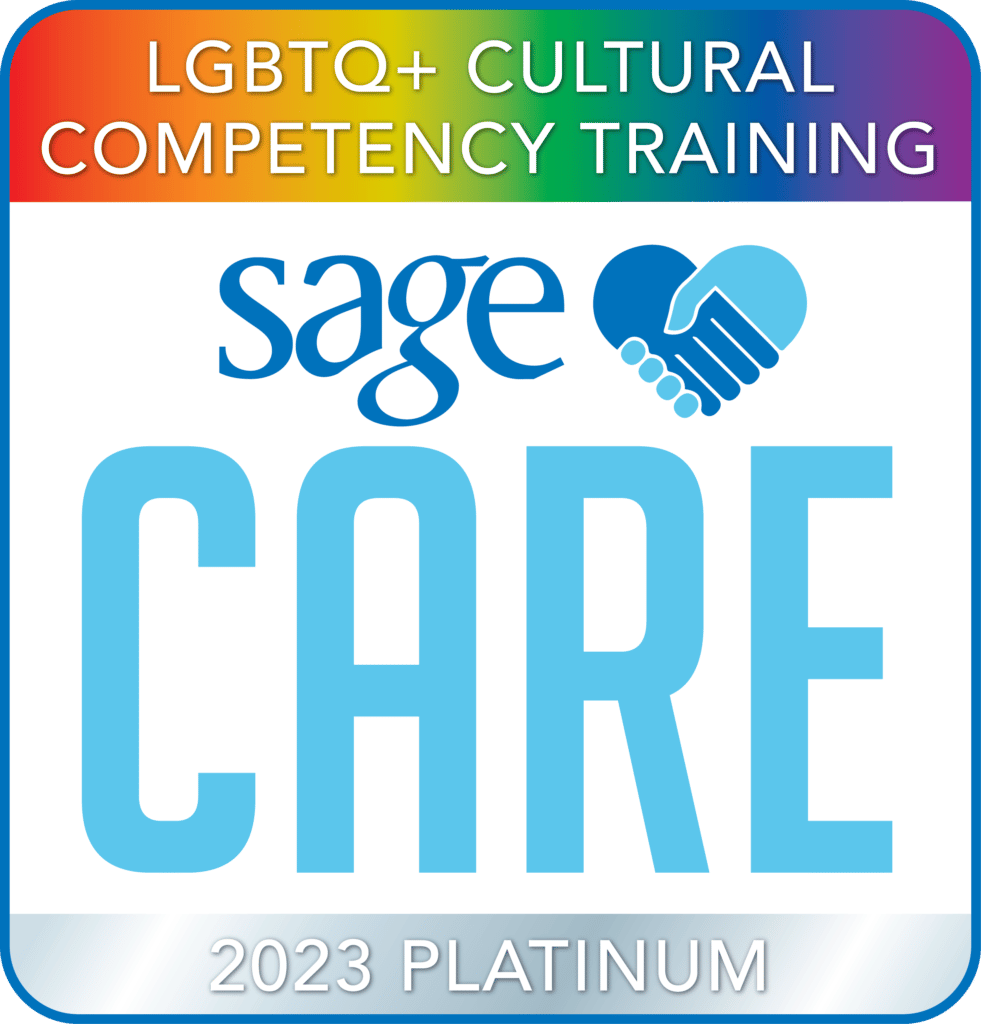Stroke Signs, Symptoms and Prevention for Seniors

In recognition of American Heart Month, it only seems appropriate to bring awareness to serious heart conditions like a stroke. Not only do strokes affect you differently based on where they occur in the brain, but strokes can be classified in three different ways. Ischemic strokes, hemorrhagic strokes, and transient ischemic attacks are all caused by different factors in your brain, body, and cardiovascular system. By understanding the signs, symptoms, and treatments of stroke, you and your senior loved one can take proactive steps now to prevent them from happening in the future.
Ischemic strokes
This is the most common type of stroke, accounting for 87% of all strokes. It occurs because of the blood supply being restricted – usually by a clot of fatty tissue in the artery. When it occurs in the brain, it’s called a thrombotic stroke, and when it occurs elsewhere in the body and travels to the brain, it’s called an embolic stroke.
Risks for this type of stroke naturally occur with age, but people who have high blood pressure, high cholesterol, heart disease, or are smokers, have a higher risk of experiencing this medical condition.
To help prevent this, it’s recommended to follow your medication plan, manage your weight and cholesterol through a healthy diet and exercise, and take action to reduce stress.
Hemorrhagic strokes
This type of stroke is caused by a blood vessel rupturing, thereby preventing parts of the brain from getting oxygen. This can occur if the blood vessels become weak or hardened over time. If the stroke causes bleeding in the brain itself, it is called an intracerebral stroke, and if it occurs in the space between the brain and its protective tissues, then it is a subarachnoid stroke.
You are more at risk for this type of stroke if you have abnormally formed blood vessels (check your family history for strokes and aneurysms) if you have high blood pressure, and if you are a smoker or heavy drinker.
Blood vessels will weaken over time, but you can help prevent this type of stroke by managing your high blood pressure, quitting smoking and drinking, and developing healthy daily routines that include a nutritious diet and exercise.
Transient ischemic attack
TIAs are often called mini-strokes – episodes where blood flow to the brain is interrupted for a very short amount of time. You can usually fully recover from these, but they are an important warning sign that you are at high risk for an ischemic stroke. Around 40% of people who suffer from TIAs experience a full stroke at a later period.
TIAs can be caused by very small fatty deposits that get stuck in the blood vessels for a very short amount of time, and these deposits can occur in the brain or travel to the brain from other parts of the body.
The risk factors are the same as for ischemic stroke, and it’s vitally important to prioritize your physical health through diet, exercise, and managing any other chronic conditions like diabetes, to minimize your risks.
Stroke symptoms to watch out for
All stroke symptoms are the same, with TIAs having these symptoms for a short amount of time (even seconds or minutes). Always be on the lookout for the following to provide immediate assistance to a stroke victim:
- Sudden numbness in the face, arm, or leg, especially on one side of the body
- Sudden trouble walking, talking, or moving
- Sudden dizziness, confusion, and difficulty with speech
- Sudden trouble with seeing clearly, especially in one eye
If you or anyone else experiences any of these symptoms, it is vital to get medical assistance from a caregiver, doctor, paramedics, or a hospital as quickly as possible, even if they appear to go away.
Long-term care in Sussex County, NJ
Bristol Glen is one of the leading long term care communities in Sussex County. We offer a beautiful and welcoming space for seniors who need additional care and assistance to live a full and abundant life. Our nursing team is compassionate, fully trained, and ready to assist with stroke treatments for seniors as well as managing dementia, diabetes, and other chronic conditions.
For more information on Bristol Glen and how we are different to other long term care communities in NJ, please contact us today or visit our website at:




